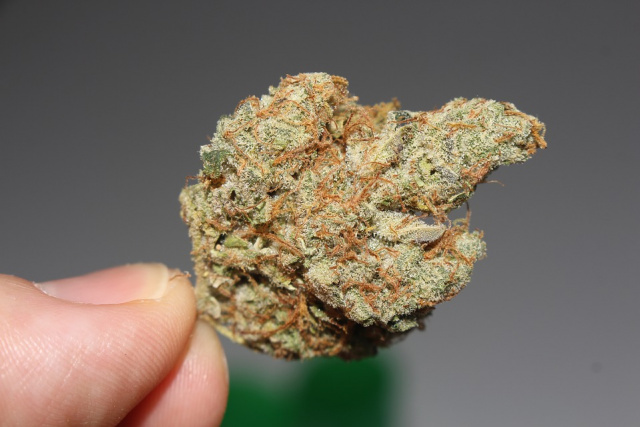
House Bill 160 would reduce the THC levels in marijuana extracts from a maximum of 90% down to a maximum of 70%, cap the number of marijuana dispensaries to 350, and reallocate the bulk of marijuana revenue to the state’s General Revenue Fund.
By: Megan Henry – May 9, 2025 5:00 am
More than 20 people spoke out against a bill that would change Ohio’s marijuana law.
Thirty-five people submitted opponent testimony against Ohio House Bill 160, which would reduce THC levels and redirect most of the tax revenue. State Rep. Brian Stewart, R-Ashville, introduced the bill two months ago and opponents testified against the bill for more than three hours during Wednesday’s House Judiciary Committee meeting.
“H.B. 160 imposes a litany of negative changes on cannabis users, consumers, growers, and professionals to dismantle key parts of current Ohio law enacted by your constituents,” said Gary Daniels, ACLU of Ohio’s legislative director. “At worst, these changes can be interpreted as purposeful, designed to kneecap Issue 2. At the least, these changes fundamentally handicap the purchase, use, transportation, and sale of cannabis in the state.”
Ohioans passed a citizen-initiated law to legalize recreational marijuana in 2023 with 57% of the vote, and sales started in August 2024. Ohio lawmakers can change the law since it passed as a citizen initiative. The state’s total recreational marijuana sales were $479,219,877 as of April 26, according to the Ohio Department of Commerce Division of Cannabis Control.
H.B. 160 would reduce the THC levels in marijuana extracts from a maximum of 90% down to a maximum of 70%, cap the number of marijuana dispensaries at 350, and reallocate the bulk of marijuana tax revenue to the state’s General Revenue Fund. It would ban using marijuana in public spaces and offer expungement for prior convictions for marijuana related offenses.
“I think this bill represents the most thoughtful of the approaches we’ve seen from legislators,” said state Rep. Jamie Callender, R-Concord. “If we could find some common ground, I think the sponsor has mentioned that he wants to have a fairly stripped down bill.”
H.B. 160 would repeal the Cannabis Social Equity and Jobs Program, which was enacted through the passage of Issue 2. The bill also has an intoxicating hemp provision that would require every THC product to only be sold at Ohio’s regulated marijuana dispensaries.
During the committee meeting, Callender held up an intoxicating hemp product he recently purchased with the Hawaiian Punch logo on it.

“This is to show that there is some common ground,” Callender said. “1,000 milligrams of THC, 96.1% THC. … No ID required to purchase, no ID required to go into the location. … We don’t want children having access. We don’t want false labeling.”
The bill would also make it illegal to purchase marijuana in another state and bring it back to Ohio.
“But Ohioans can still return home from their favorite out-of-state microbrewery with a can, six pack, or entire keg of beer,” Daniels.
Many of the opponents were not shy about pointing this out.
“The Issue 2 campaign was called Regulate Cannabis Like Alcohol,”said Karen O’Keefe, Marijuana Policy Project’s director of state policies. “Yet H.B. 160’s unnecessary and onerous restrictions on cannabis in no way resemble how alcohol is regulated. … Would you ban possessing bourbon purchased in Kentucky?”
Opponents questioned where they would be legally allowed to use marijuana if the bill passed.
“If people can’t consume at home-and sharing at a friend’s house becomes illegal, where are they supposed to consume safely?” asked Anthony D. Riley, founder of Ohio Cannabis Live and the Ohio Cannabis Expo.
Those opposed to the intoxicating hemp provisions are worried about the ramifications of limiting sales to only marijuana dispensaries.
“We have concerns that the language in S.B. 160 would ban most types of legal hemp products from retail sales, reducing access for consumers,” said Ohio Grocers Association President Kristin Mullins.
Instead, she wants lawmakers to incorporate regulatory oversight such as age-restricting products and product labeling.
Ohio Senate marijuana bill
The Ohio Senate passed their own version of a bill that would overhaul the state’s marijuana law back in February — shortly before the House introduced their bill.
There are some similarities between the bills such as lowering THC levels, requiring marijuana only be used in a private residence, and capping dispensaries at 350.
One of the biggest differences with Senate Bill 56 is limiting Ohio’s home grow from 12 plants down to six. The bill would also combine the state’s medical and recreational marijuana programs under the Division of Cannabis Control.
S.B. 56 has yet to have a hearing over in the House.










